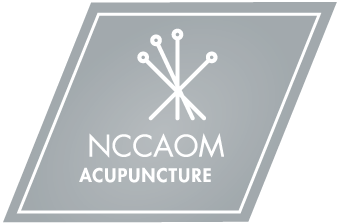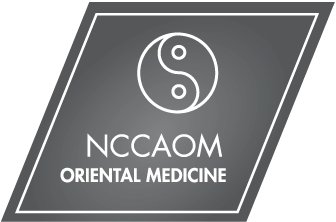AcupunctureCrWu
My Certifications
Diplomate of Acupuncture

A Diplomate of Acupuncture is an acupuncturist who is certified by the National Certification Commission for Acupuncture and Oriental Medicine (NCCAOM®). It is a considerable professional achievement to earn the designation Diplomate of Acupuncture (NCCAOM). NCCAOM certification indicates to employers, patients, and peers that one has met national standards for the safe and competent practice of acupuncture as defined by the acupuncture and Oriental medicine (AOM) profession. For additional information, about the Diplomate of Acupuncture, please visit the NCCAOM Website.
Diplomate of Oriental Medicine

A Diplomate of Oriental Medicine is a practitioner who is certified by the National Certification Commission for Acupuncture and Oriental Medicine (NCCAOM®) and has met the certification requirements for both acupuncture and Chinese herbology. It is a considerable professional achievement to earn the designation Diplomate of Oriental Medicine (NCCAOM). NCCAOM certification indicates to employers, patients, and peers that one has met national standards for the safe and competent practice of acupuncture and Chinese herbology as defined by the acupuncture and Oriental medicine (AOM) profession. For additional information, about the Diplomate of Oriental Medicine, please visit the NCCAOM Website.
Licensed Acupuncturist
(definition by University of the State of New York - New York State Education Department)
An acupuncturist is a licensed health care professional who, based on the concepts of oriental medicine, maintains the health of patients and evaluates and treats their illness and pain.
Using the principles of oriental medicine, the acupuncturist will examine you by looking, listening, asking questions, and touching. This allows the acupuncturist to record a full case history.
Once an evaluation is made, the acupuncturist may insert very fine acupuncture needles into a number of points on your body. The purpose of the needles is to stimulate acupuncture points; the needles do not inject any substance into the body. We encourage you to ask your acupuncturist to use presterilized disposable needles.
In some cases, acupuncture may be accompanied by electrical stimulation or the burning of moxa, a form of heat therapy. Acupuncturists may also use a variety of other techniques to enhance acupuncture treatment.
Many conditions may respond to acupuncture, including those related to the following:
- neurological system
- musculo-skeletal system
- respiratory system
- gynecologic and reproductive system
- digestive system
- genito-urinary system
Acupuncture may also help with:
- acute and chronic pain
- maintaining emotional balance
- stress reduction and detoxification